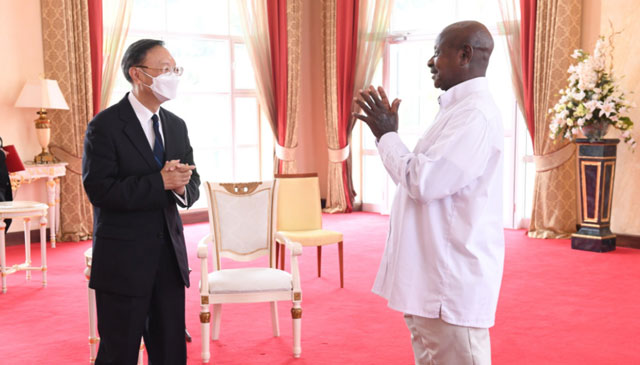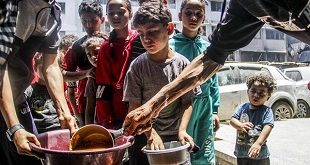
COMMENT | Ronald Kato | The Forum on China-Africa Cooperation (FOCAC) ministerial meeting which starts next week in Dakar, Senegal comes at a critical time for both China and Africa.
The pandemic has left countries reeling, economies faltering and communities troubled. It has reset global politics, widened the gap between the Global North and the South, and tested friendships and alliances.
The China-Africa ties were no exception. As Beijing shipped millions of test kits, tons of PPE and masks to help countries in Africa respond to the pandemic just as some African countries had sent supplies to Wuhan in January 2020, something unfortunate happened in Guangzhou.
Several African citizens were moved from their hotels and apartments as health officials enforced strict pandemic control measures. Some were in trouble for immigration-related offences. Many spent nights on the streets.
It is evidence that even the most mutually respectful relationships suffer shocks.
African envoys in Beijing quickly lodged representations. Addis Ababa contacted Beijing too.

The Guangzhou events had been weaponized by some forces to sow distrust and division, and to erode the goodwill China had amassed from its supplies of pandemic control gear to Africa.
After days of diplomatic activity, the matter was resolved. Guangzhou apologized to the affected individuals, cautioned landlords and hotel owners, as well as health officials.
But all this would not have been possible without FOCAC. Diplomats leveraged the forum’s structures and built on its experience to communicate and exchange.
FOCAC is the primary framework and mechanism through which China and Africa engage. FOCAC is the glue that holds together over 2.6 billion people and has kept them talking, consulting and exchanging.
Months before the global North started sharing their vaccines, embarrassed that vaccine hesitancy had rendered their hoarding efforts useless, Africa had welcomed life-saving jabs from Beijing.
As the world pleads with developed countries to lift patents on vaccines, Morocco and Egypt are already producing Sinovac jabs locally.
With Africa being the least vaccinated continent, Chinese vaccines, as well as the technology to make them will be key to achieve the continent’s recovery efforts.
Of course China-Africa cooperation has seen worse days. Before Guangzhou, many western officials and media, without evidence decided to pick on Chinese lending to Africa and other developing countries.
‘Debt-trap’ is what they called credit extended to countries to build critical infrastructure. This trope sought to portray African leaders and their countries as victims and Beijing as the predator.
This infantilization of African countries has ended with the realization that there is no appetite for great power competition on the continent.
That people could see through the bad faith of developed countries slandering a country trying to invest in a continent they deem too risky.
The Belt and Road Initiative (BRI), while has things to improve about it, remains Africa’s only [and best] to achieve critical infrastructure needed by countries to participate in the global economy.
Since the last summit three years ago, Entebbe airport expansion has happened, the Kampala-Entebbe expressway opened and Isimba began generating electricity. FOCAC delivers tangible development.
At the Dakar meeting, Chinese and African officials will remind themselves of Africa’s huge infrastructure gap and will likely choose to keep going, and not relenting.
FOCAC crystallizes the unique and complex relationship China and Africa enjoy.
Trade, Investment and AfCFTA
At 21, FOCAC has become an important platform to drive and influence global policy. It is result-oriented . FOCAC is not a talking shop.
Since the last summit in Beijing three years ago, China has sought soy bean from Tanzania and Ethiopia, beef from from Namibia, chilly pepper among other.
Beijing still maintains a big trade surplus over Africa but the permitting of hundreds of African products to access the Chinese market should help close the gap in the coming years.
Both sides should leverage the opportunities and linkages offered by the African Continental Free Trade Area (AfCFTA) bilateral trade even further. We could even think of a Free Trade Agreement (FTA).
Imagine a market of 2.6 people! It is possible.
Chinese investment should go to improving the capacity of African manufacturing and skills.
If Covid-19 has taught us anything, it is that the Global South is mostly on its own. The current global environment presents China and Africa even more areas to cooperate.
As the leader in renewable energy investment and technology, Africa can bank on Beijing for technical capacity and financial assistance to power sustainable development.
As the largest supplier of vaccines so far, Africa will need Chinese vaccines to fully reopen its economy. This is an opportunity to deepen and to build on the decades of medical diplomacy by Beijing.
Congratulations to the Chinese and African delegations attending the meeting in Dar.
*******
Ronald Kato is a journalist and an alumni of the China International Press Communication Center (CIPCC)
 The Independent Uganda: You get the Truth we Pay the Price
The Independent Uganda: You get the Truth we Pay the Price



